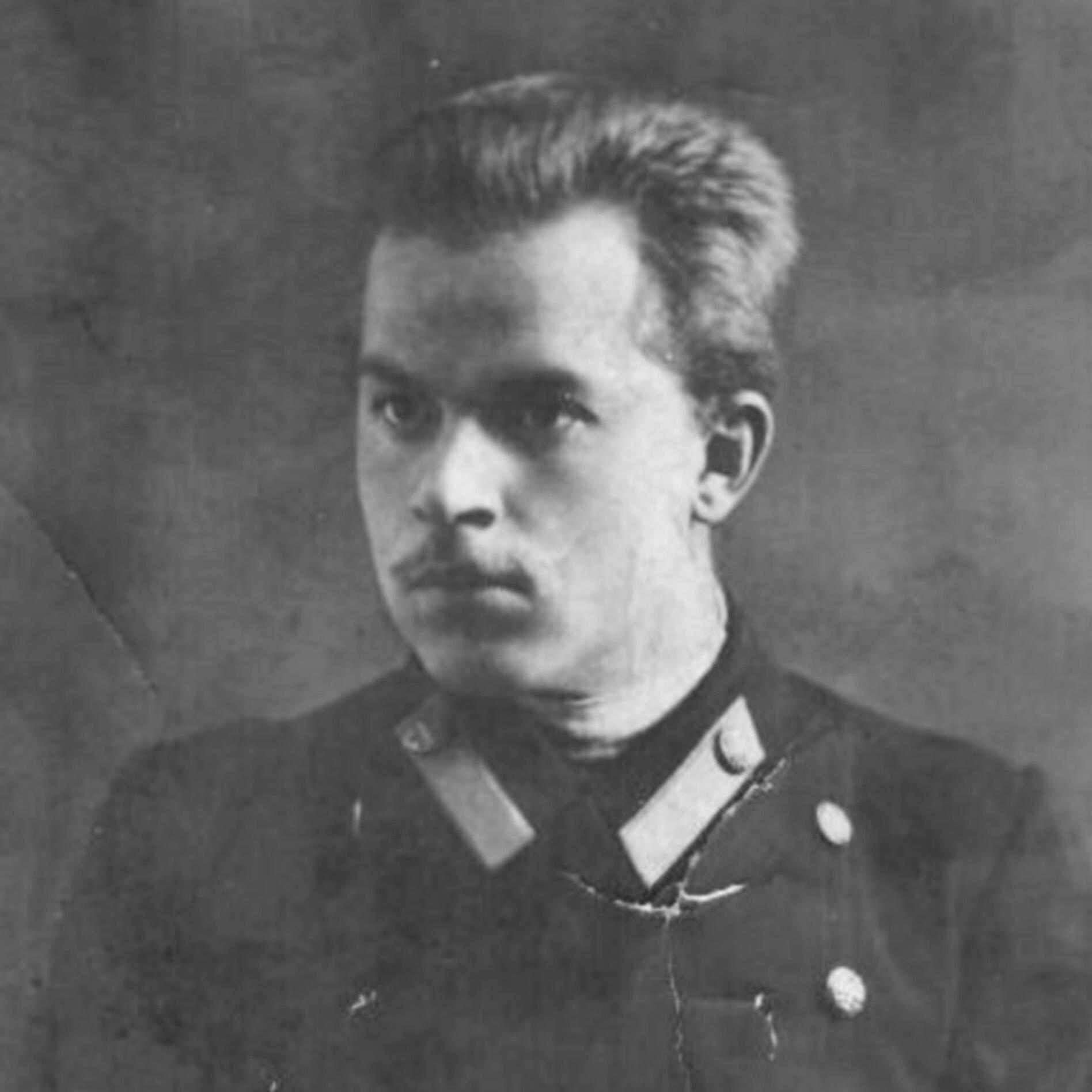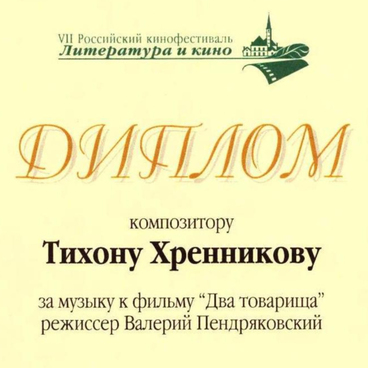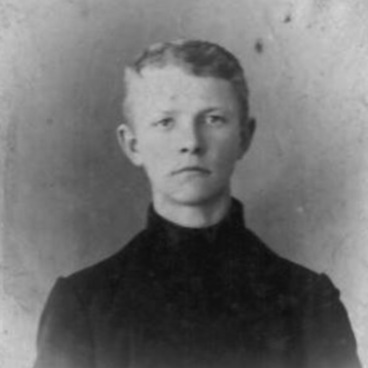The picture shows Nikolay, the elder brother of the composer Tikhon Khrennikov. He is dressed in a uniform that university students must wear. The photograph was taken at the early 20th century.
Nikolay was born in 1890 and was the eldest child in the family. Parents paid a lot of attention to the education of their children, and were proud when Nikolay entered the physics and mathematics faculty of the Moscow University and moved to the capital. He was an example for other brothers, they tried to imitate him in everything, tried to study and get higher education.
After graduation, Nikolay worked in the Cultural and Educational Department, and then devoted himself to teaching: he worked first as a teacher and then as a school director in his native town Yelets. He had a wonderful family: wife Olga, son Eugene and daughter Veronica.
In 1937, Nikolay, along with his brother Boris, was arrested on a false denunciation, and he spent two years in prison. Tikhon Nikolayevich, who at that time had just graduated from the conservatory, organized a campaign to release Nikolay from custody, and was able to get the case to be transferred to the people’s court. The future composer brought the famous lawyer Ilya Braude from Moscow. As a result, Nikolay was fully acquitted, released in the courtroom and reinstated at work. Tikhon Nikolayevich could not help Boris, and all his life he blamed himself for this.
After his release, Nikolay fell ill with tuberculosis. He needed careful care, quality food and a calm environment. This was not always possible: he was very worried about Boris, who was sent to the northern camps. Then the war began and, as a result, food shortages, and then the Nazis occupied the city. All this did not have the best effect on Nikolay’s health.
In 1942, Nikolay died in Yelets. He was buried in the family plot of the old city cemetery, next to his father. The composer recalled his brother as an honest, decent man who could with dignity endure all the trials that fell to his lot. When Tikhon Khrennikov moved to Moscow, he often returned to his hometown and always visited the old cemetery to pay tribute to his relatives.
Nikolay was born in 1890 and was the eldest child in the family. Parents paid a lot of attention to the education of their children, and were proud when Nikolay entered the physics and mathematics faculty of the Moscow University and moved to the capital. He was an example for other brothers, they tried to imitate him in everything, tried to study and get higher education.
After graduation, Nikolay worked in the Cultural and Educational Department, and then devoted himself to teaching: he worked first as a teacher and then as a school director in his native town Yelets. He had a wonderful family: wife Olga, son Eugene and daughter Veronica.
In 1937, Nikolay, along with his brother Boris, was arrested on a false denunciation, and he spent two years in prison. Tikhon Nikolayevich, who at that time had just graduated from the conservatory, organized a campaign to release Nikolay from custody, and was able to get the case to be transferred to the people’s court. The future composer brought the famous lawyer Ilya Braude from Moscow. As a result, Nikolay was fully acquitted, released in the courtroom and reinstated at work. Tikhon Nikolayevich could not help Boris, and all his life he blamed himself for this.
After his release, Nikolay fell ill with tuberculosis. He needed careful care, quality food and a calm environment. This was not always possible: he was very worried about Boris, who was sent to the northern camps. Then the war began and, as a result, food shortages, and then the Nazis occupied the city. All this did not have the best effect on Nikolay’s health.
In 1942, Nikolay died in Yelets. He was buried in the family plot of the old city cemetery, next to his father. The composer recalled his brother as an honest, decent man who could with dignity endure all the trials that fell to his lot. When Tikhon Khrennikov moved to Moscow, he often returned to his hometown and always visited the old cemetery to pay tribute to his relatives.



